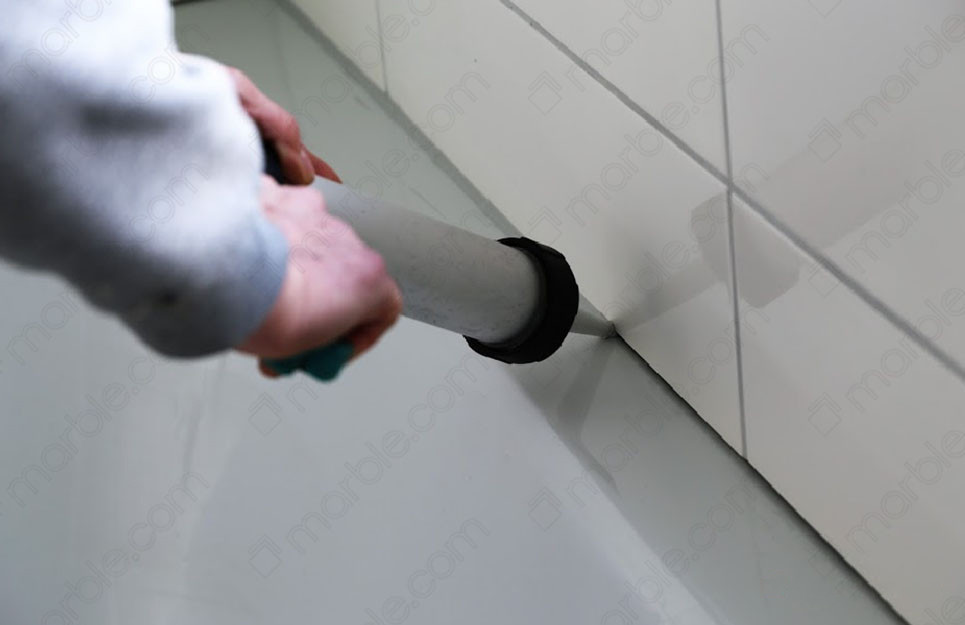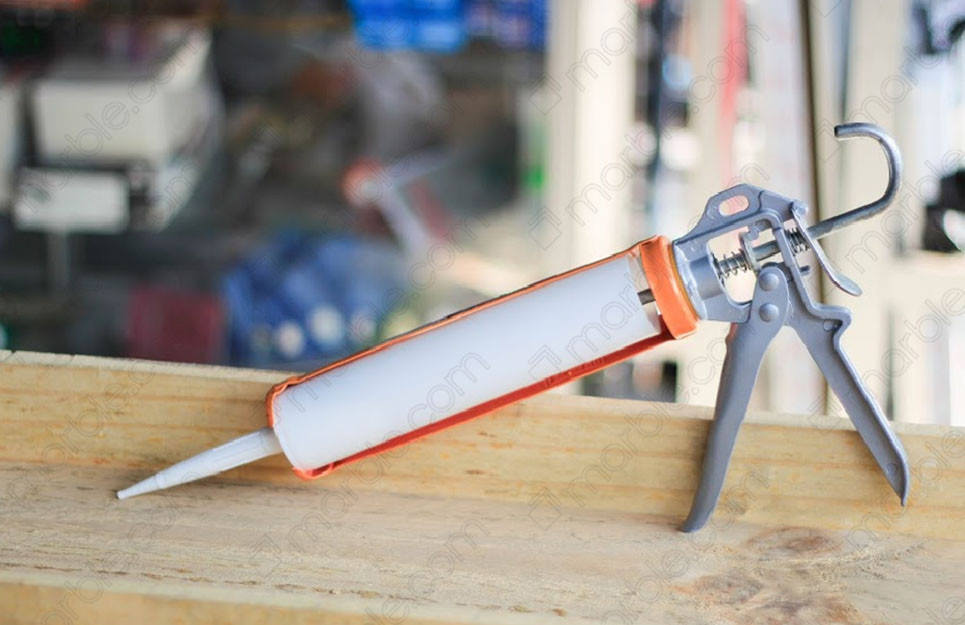How to Caulk a Kitchen Counter to Wall – The Easy Way!
When it comes to kitchen Countertops, there are a lot of things you can do to improve your overall look and feel. You can caulk the walls, add a few pieces of hardware, or even use a spray bottle to do it all!
But in order to make sure your caulk is effective and won’t cause any problems in the future, we recommend using a caulk that is specifically made for kitchens.
In this article, we’re going to show you how to caulk a kitchen counter with a high-quality product.

What you need to know before beginning
First, you’ll need to be sure that the product you’re using is specifically designed for kitchens. If it isn’t, you may experience problems with the caulk later on.
Second, make sure that the product you’re using istemp-resistant. This means that the caulk will not work if the temperature changes, even if the wall is not specifically designed to handle heat.
Third, use a level when applying the caulk. Not only will this help ensure that your caulk evenly goes throughout the wall, but it also prevents any bubbles from forming and ruining your installation.
Fourth, be sure to test the caulk before finalizing your project. By doing so, you can be sure that it is working properly and won’t cause any problems in the future.
The different types of caulk
There are a few different types of caulk that are great for kitchens. You can use block caulk, water-based caulk, or silicone caulk. Each type of caulk has its own benefits and drawbacks.
For example, block caulk is a good choice if you want to create a strong seal on the countertop. It’s easy to apply and doesn’t leave any residue behind. However, it can be a little messy and may not be as long-lasting as other types of caulk.
Water-based caulk is a better choice if you want to create a watertight seal on your countertops. It’s very easy to apply and doesn’t leave any residue behind. However, it can be a little messy and may not be as long-lasting as other types of caulk.
Silicone caulk is perfect for creating an airtight seal on your countertops. It’s difficult to apply but does leave a durable finish that will stay in place for years.
The difference between caulk and paint
The first thing to understand is that caulk and paint are two different types of products. Caulk is made of a natural material, such as cork, which helps it bond to the surface.
Paint, on the other hand, is a paint-like substance that is Mixed with asphalt or other materials to create a temporary surface.
In order to get the best results with your caulk, you should use a product made specifically for kitchens. This will ensure that your caulk is effective and won’t cause any problems in the future.
How to measure your kitchen counter
The first step is to measure your kitchen counter. This will help you determine the amount of caulk you need and make sure that you’re using the correct product for your surface. Once you have the correct amount of caulk, it’s time to start caulking!
The process of cauling a kitchen counter
The first step in caulking a kitchen counter is to determine the size of your kitchen. Next, you’ll need to choose a type of caulk.
We recommend using a caulk that is specifically made for kitchens, like All-Caulk. This will help ensure that your caulk is effective and won’t cause any problems in the future.
Once you have chosen your caulk, it’s time to begin the process of caulking the wall. This will take a little bit of time, but it’s worth it because you’ll end up with a beautiful and strong kitchen countertop!
Professional Help is Necessary
If you’re caulking a kitchen countertop specifically for your business, it’s important to have professional help. This will ensure that the caulk is applied correctly and that there are no problems in the future.
You won’t be able to do it yourself and could easily cause damage to your kitchen wall. A professional caulker will be able to use more accurate techniques and get the job done faster.
Additional Tips for Caulking a Kitchen Counter
If you want to make sure your caulk is effective and won’t cause any problems in the future, we recommend using a caulk that is specifically made for kitchens.
With this information, you can be confident that your caulk will be safe and effective. Additionally, you can use other tips to improve the look and feel of your kitchen countertop.
Security consideration
When it comes to kitchen countertops, it’s important to take security into account. Many caulk products are designed for a specific application, such as bathrooms or kitchens.
If you use a product that isn’t specifically designed for kitchens, you may end up with negative consequences.
For example, if you use a caulk that is designed for other areas of the home, it may not be effective in caulking the kitchen countertop. This could cause water damage or even a fire!
Recommendations for a Good Kitchen caulk
We recommend using a caulk that is specifically made for kitchens. This will ensure that your caulk is effective and won’t cause any problems in the future.
Additionally, we recommend using a caulk that is resistant to water and has a long life. You can also use it on wood surfaces, so it’s perfect for Leaving Your Countertops looking New Again!

Conclusion
Caulk a kitchen counter to wall is a very important step in your kitchen renovation project. By using the right caulk, you can avoid any damage to your countertops and make your kitchen look brand new again.
However, before beginning the cauling process, you need to know a few things. In this article, we will tell you what you need to know before starting, the different types of caulk and how to measure your counter.
We will also recommend some additional tips and security considerations you should take into account when caulking your kitchen counter.
How to Choose the Right Caulk For Your Countertops
In most homes, the granite countertops are the foundation of the kitchen. They provide a beautiful and durable surface that can handle a lot of wear and tear.
However, not all caulks are created equal. And, when it comes to choosing the right caulk for your countertops, it’s important to do your research. Here are some tips to help you make the best decision possible.
What is the caulk you want to use?
First and foremost, you need to decide what type of caulk you want to use. There are three types of caulks: natural, non-toxic, and waterproof. You should also choose the right caulk for your needs.
Natural caulks are made from natural materials like lime and chalk. They’re generally stronger and more durable than other types of caulks.
They’re also less likely to react with other surfaces, which can make them great for areas that require a high level of precision or cleanliness.
Non-toxic caulks are made from chemicals that won’t cause any harm to your countertops. They’re also less likely to react with other surfaces, making them perfect for areas that don’t require as much precision or cleanliness.
Waterproof caulks are made from chemicals that will protect your countertops from water damage. They’re also more durable than non-waterproof caulks, meaning they can handle more wear and tear. Choose the type of caulk that best suits your needs and your budget.
What are the benefits of using a particular caulk?
When it comes to choosing the right caulk for your countertops, there are many benefits. There are a few different types of caulk that are ideal for different tasks. These include: powder-coated caulk, clear caulk, and stucco-coated caulk.
One benefit of using a powder-coated caulk is that it’s very resistant to weathering. This means that even if your countertops get wet, the paint won’t peel or chip off.
Additionally, this type of caulk is very easy to clean. All you have to do is pop it off of the countertop and then clean it with soap and water.
How do you test the caulk for compatibility?
One of the first things you need to do when choosing a caulk is to test it. To do this, you’ll need a caulk sample, a piece of granite, and some water. You can place the granite on top of the caulk sample, and then use a hairdryer or an oven to heat up the granite so that it becomes soft.
Once the granite becomes soft, you can start to apply the caulk. Be sure to apply it evenly and wait for it to set before you begin using the countertop.
You can also use a weight plate to test the caulk for compatibility. Place the weight plate on top of a layer of granite and then use a hairdryer or an oven to heat up the weight plate until it becomes soft.
Once the weight plate becomes soft, you can start to apply the caulk. Be sure to apply it evenly and wait for it to set before you begin using the countertop.
You can also use a microscope to test the compatibility of different caulks. Use a microscope to view how well each caulk will adhere to your granite. Look for areas that are easily damaged by wear and tear, and make sure that all areas are covered by caulk.
Which caulks are best for your countertops?
Caulks are a type of adhesive that is used to adhere objects to a surface. They come in a variety of colors and textures, and they can be used in a variety of settings. You can use caulks in many different ways, depending on the task at hand.
For example, you might use caulks to attach dishes to the countertops or to create a seal around openings in your kitchenware. But there are two main types of caulks: epoxy and silicone.
Professional Tips to Choose the Right Caulk for Your Countertops
1. Look for a caulk that is safe to use and will not damage your granite countertops.
2. Make sure the caulk you choose is a good match for the surface of your granite countertops.
3. Be sure to test the caulk on a small piece of granite before using it on an entire surface.
4. Follow the manufacturers’ instructions carefully when using caulk on your granite countertops.
5. Don’t forget to apply caulk in a even layer, so it doesn’t form any bubbles.
Additional Tips for Choosing the Right Caulk
1. Look for a sealant that is safe to use on granite countertops.
2. Be sure to test the caulk before you install it on your granite countertops.
3. Choose a caulk that is appropriate for your surface type and climate.
4. Use a caulk that is non-toxic and non-flammable.
5. Apply the caulk sparingly so that it doesn’t cause any damage to your granite countertops.
Recommendation for the Best Caulk for granite countertops
When you’re looking to choose a caulk for your granite countertops, it’s important to consider the following factors:
-The type of granite
-The surface area that the caulk will cover
-The durability of the caulk
-The shape of your countertop
Summary of Choosing the Right Caulk
When it comes to caulking your countertops, it’s important to do your research and choose the right caulk according to your needs and expectations.
There are a number of factors you need to take into account whenselecting a caulk for your countertops, including: the surface area that you want to caulk, how long you want the caulk to last, and the type of surface you want it to be effective on.